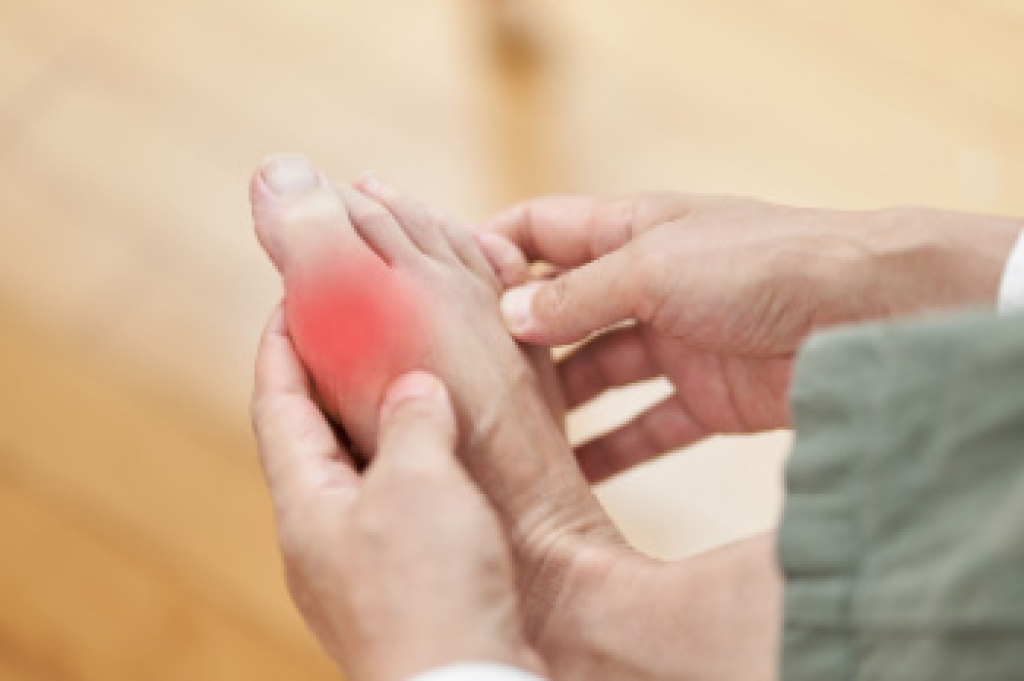
Gout is a form of arthritis that often affects the joints in the feet, especially the big toe. It occurs when uric acid builds up in the blood and forms sharp crystals in the joints. This can cause sudden and severe pain, redness, and swelling that may last for several days. Gout flare-ups are often triggered by foods high in purines, such as red meat, shellfish, or alcohol. Dehydration, obesity, and certain medications may also increase the risk. Managing gout involves lifestyle changes like staying hydrated, maintaining a balanced diet, and limiting alcohol. Medications are sometimes needed to control uric acid levels and reduce inflammation. Ignoring gout can lead to lasting joint damage and decreased mobility. If you experience painful flare ups in your feet, it is suggested that you meet with a podiatrist for a proper diagnosis and appropriate treatment.
Gout is a painful condition that can be treated. If you are seeking treatment, contact one of our podiatrists from Family Foot Health Center. Our doctors will treat your foot and ankle needs.
What Is Gout?
Gout is a form of arthritis that is characterized by sudden, severe attacks of pain, redness, and tenderness in the joints. The condition usually affects the joint at the base of the big toe. A gout attack can occur at any random time, such as the middle of the night while you are asleep.
Symptoms
- Intense Joint Pain - Usually around the large joint of your big toe, and it most severe within the first four to twelve hours
- Lingering Discomfort - Joint discomfort may last from a few days to a few weeks
- Inflammation and Redness -Affected joints may become swollen, tender, warm and red
- Limited Range of Motion - May experience a decrease in joint mobility
Risk Factors
- Genetics - If family members have gout, you’re more likely to have it
- Medications - Diuretic medications can raise uric acid levels
- Gender/Age - Gout is more common in men until the age of 60. It is believed that estrogen protects women until that point
- Diet - Eating red meat and shellfish increases your risk
- Alcohol - Having more than two alcoholic drinks per day increases your risk
- Obesity - Obese people are at a higher risk for gout
Prior to visiting your podiatrist to receive treatment for gout, there are a few things you should do beforehand. If you have gout you should write down your symptoms--including when they started and how often you experience them, important medical information you may have, and any questions you may have. Writing down these three things will help your podiatrist in assessing your specific situation so that he or she may provide the best route of treatment for you.
If you have any questions, please feel free to contact our office located in Rogers and Berryville, AR . We offer the newest diagnostic and treatment technologies for all your foot care needs.
